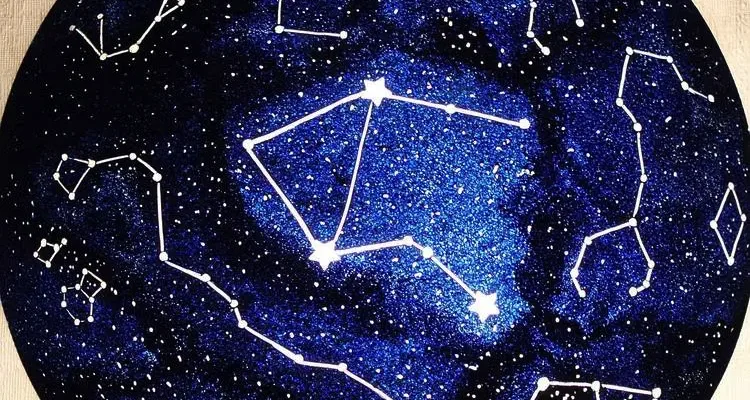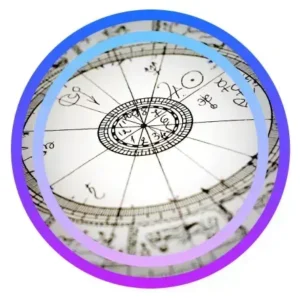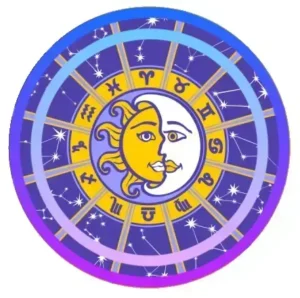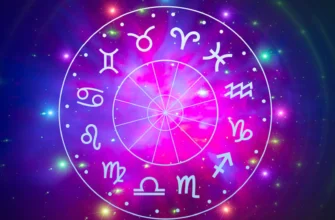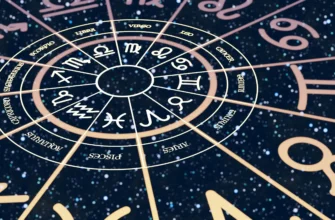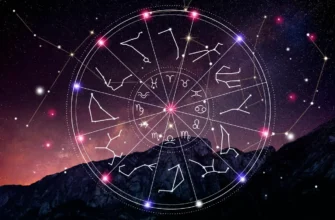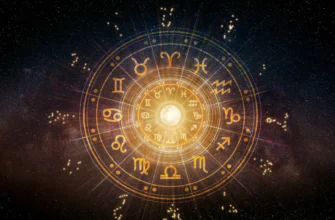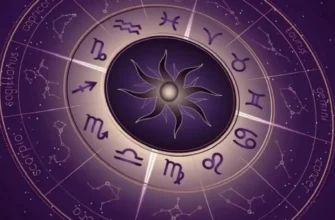Venus square Uranus in synastry introduces a spark of unpredictability that can make relationships thrilling, unstable, or transformative. In a synastry chart, Venus expresses love, affection, and emotional needs, while Uranus delivers shock, excitement, and an urge for independence. The synastry meaning behind this aspect often revolves around unconventional attraction — the type that appears suddenly, grows intensely, and may challenge traditional expectations. In compatibility astrology, this dynamic highlights a desire for freedom and novelty within the relationship.
One partner may crave closeness, while the other oscillates between intimacy and detachment. Relationship astrology suggests that Venus square Uranus often brings lessons about authenticity, emotional flexibility, and releasing outdated patterns. When handled consciously, this aspect can create a uniquely exciting partnership that evolves outside conventional norms. But without mutual understanding, it may lead to emotional inconsistency or sudden shifts that test zodiac compatibility.
Venus represents love, affection, harmony, beauty, pleasure, values, money, and the capacity to create stable satisfying relationships through compromise, social grace, and aesthetic refinement in the Birth Chart. Uranus embodies sudden change, rebellion, freedom, unpredictability, unconventional behavior, rejection of tradition, and the principle of disrupting any structure feeling constraining regardless of whether that structure serves practical purposes or provides security others desperately need. When these planets clash through the 90-degree square aspect, Venus’s need for harmony, stability, and traditional relationship security conflicts violently with Uranus’s compulsive need for freedom, shocking unconventionality, and sudden disruptive changes preventing relationship from ever stabilizing into comfortable patterns Venus naturally seeks.
The square, as astrology’s aspect of maximum friction and crisis, creates relationship where attraction exists yet proves difficult to sustain – both people want connection yet Uranus cannot tolerate the constraint and predictability connection requires while Venus cannot tolerate the instability and shocking disruptions Uranus naturally generates. The relationship oscillates between passionate intensity and sudden distance, between committed partnership and shocking abandonment, between hopeful stability attempts and inevitable disruptions as Uranus’s freedom needs repeatedly destroy whatever security structures Venus painstakingly constructs.
Unconventional Love: Gender Role Reversals and LGBTQ+ Attraction
Venus square Uranus, though “less powerful than conjunction,” creates “unique attraction that is difficult for either to resist” while simultaneously bringing “more unusual emotional patterns” – making this aspect “common among same-sex couples” and creating gender role reversals “even in heterosexual couples” where “90-degree aspect between Venus and Uranus can overturn traditional gender role perceptions.”
The aspect essentially queers relationships – disrupting conventional gender performance, challenging heteronormative assumptions, and creating partnerships where people express identities and desires transcending or contradicting socially-prescribed roles. The American writer’s description of her relationship as “romance between her inner gay self and boyfriend’s inner lesbian self” perfectly captures Venus-Uranus square’s characteristic: both people access and express aspects of themselves that don’t align with their apparent gender, biological sex, or socially-expected role performances.
“When woman’s Venus forms square aspect with man’s Uranus, woman often appears exceptionally assertive; conversely, man appears remarkably feminine.” The square activates what Jungian psychology would call contra-sexual aspects – the animus in women and anima in men – creating relationships where conventional masculine-feminine polarity reverses or dissolves entirely. The woman takes initiative, expresses direct desire, asserts dominance or leadership typically coded masculine; the man expresses emotional vulnerability, receptivity, aesthetic sensitivity, or domestic interest typically coded feminine.
This gender fluidity within relationships proves liberating for people feeling constrained by conventional roles yet creates social discomfort or judgment from others expecting traditional gender performance. The couple might face external pressure to conform while internally experiencing their unconventional dynamic as authentic, exciting, and superior to boring conventional alternatives. However, the square’s friction means even participants sometimes feel confused, threatened, or destabilized by role reversals challenging their own internalized gender expectations despite finding those reversals attractive and authentic.
When analyzing relationship compatibility astrology for LGBTQ+ partnerships or heterosexual couples interested in unconventional gender dynamics, Venus square Uranus indicates natural affinity for queered relationship structures, gender role flexibility, and rejection of traditional assumptions about who should pursue, provide, nurture, or lead within partnership – making this aspect valuable for people seeking liberation from conventional constraints yet challenging for people needing stability, predictability, or clear role definitions providing comfortable structure for relating.
The Separate Marriage: Space as Requirement Not Problem
The couple married over twenty years yet living separately for eight years illustrates Venus square Uranus’s characteristic pattern: “For intimate relationships with Venus-Uranus squares, being together every day can actually be very stressful.” The square creates friction making sustained daily proximity difficult – Uranus feels trapped and constrained by Venus’s presence and relationship expectations; Venus feels destabilized and insecure by Uranus’s need for space and shocking unpredictability. Both experience relief when physical distance provides freedom while legal/emotional bonds remain intact.
“Their marriage was already quite free before husband went to work in Shanghai; it wasn’t traditional ‘inseparable’ relationship.” The square naturally creates open marriages, separate residences, living-apart-together arrangements, or other unconventional structures allowing relationship to continue while preventing the suffocating daily proximity that would trigger Uranus’s rebellion and Venus’s exhaustion managing constant disruptions and instability Uranus generates in shared space.
This explains why “seemingly unconventional situation is actually conducive to maintaining long-lasting relationship between Venus and other person’s Uranus.” What appears dysfunctional from conventional perspective – spouses living in different cities, maintaining independent lives, rarely seeing each other – actually serves relationship’s survival by preventing friction inevitable when Venus square Uranus attempts conventional cohabitation and daily intimacy impossible given their incompatible needs around freedom versus security, predictability versus spontaneity, stability versus constant change.
“They might be able to spend every day together for three to five years, but that’s impossible forever. Uranus-affiliated party is more likely to experience problems.” Eventually, even if relationship begins conventionally, Uranus cannot sustain daily proximity indefinitely – will either create distance through work “opportunities,” develop separate interests consuming time and attention, or simply leave suddenly when constraint becomes unbearable. The departure doesn’t necessarily mean relationship ends – might mean transitioning into separate-residence arrangement allowing relationship to continue on terms Uranus can tolerate.
However, this requires Venus accepting radical uncertainty and unconventional structure contradicting everything they believed relationships should provide: daily companionship, reliable presence, conventional partnership others recognize and validate, and basic security knowing partner will be there rather than potentially disappearing when freedom urges become overwhelming.
The Stabilizing Influence: Saturn and Pluto as Binding Forces
Venus square Uranus alone typically produces unstable relationships with high separation probability – yet “if there’s also aspect between Moon and other person’s Saturn or Pluto, they won’t easily break up.” Saturn and Pluto create binding forces – karmic obligation, emotional dependency, practical entanglement, or simply intensity making separation psychologically impossible despite relationship’s dysfunction and Venus-Uranus friction making conventional stability equally impossible.
“In marital relationships, Saturn or Pluto brings strong binding forces, while negative aspects of Uranus can break bonds of marriage.” This creates hierarchy of binding versus liberating forces: Uranus naturally breaks relationships apart through disruption, shocking behavior, and compulsive freedom-seeking that destroys partnership structures. Saturn and Pluto naturally bind relationships together through fear (Saturn), karmic debt (both), emotional intensity (Pluto), or practical necessity (Saturn) preventing separation despite unhappiness or dysfunction.
“If couple has 90-degree aspect to Uranus but also positive aspect to Saturn or Pluto, power of Saturn or Pluto will overcome that of Uranus, making them less likely to separate.” Harmonious Saturn or Pluto aspects create sufficient binding force containing Uranus’s disruptive tendencies – couple remains married, committed, or emotionally entangled despite Venus-Uranus square creating unconventional arrangements, periods of separation, or shocking behaviors that would destroy relationships lacking Saturn-Pluto’s binding power.
However, “if couple has 90-degree aspect to Uranus but also negative aspect to Saturn or Pluto, negative power of Saturn or Pluto will not be able to overcome negative influence of 90-degree aspect to Uranus, and they will ultimately separate because being together is simply too painful.” Challenging Saturn or Pluto aspects add suffering, control dynamics, or karmic cruelty to Venus-Uranus square’s instability – creating relationship that’s simultaneously impossible to leave (Saturn-Pluto binding) and unbearable to stay in (Uranus disruption plus Saturn-Pluto suffering). Eventually, pain overwhelms binding force and separation occurs despite karmic connections that would normally prevent it.
This reveals crucial principle for analyzing synastry chart compatibility: Venus square Uranus creates natural tendency toward separation or unconventional arrangements; whether this manifests as actual breakup versus maintained but unconventional partnership depends entirely on presence and quality of Saturn-Pluto aspects providing binding force either containing or succumbing to Uranus’s disruptive liberation energy.
Infidelity Versus Financial Devastation: Relative Damage Assessment
The document makes controversial yet astrologically-grounded claim: “We often think that infidelity leads to divorce, but based on my years of experience observing astrological charts, real reason for divorce lies in whether someone’s Moon is afflicted.” Venus square Uranus might produce infidelity, shocking sexual behavior, or unconventional romantic arrangements – yet these prove less relationship-destroying than Moon-Saturn squares, Moon-Pluto squares, or Venus-Saturn squares creating emotional coldness, financial devastation, or systematic crushing of one partner’s emotional needs and material security.
“Strictly speaking, when Venus is afflicted, damage is usually just vanity. Venus will certainly feel unhappy, but not necessarily in great pain. If Moon can be properly soothed, there won’t be any major problems.” This suggests Venus governs social image, romantic ideals, and aesthetic preferences – important yet not fundamental to psychological survival in ways Moon’s emotional security and basic attachment needs are. Venus person whose partner has affair experiences wounded pride, social embarrassment, and disappointed romantic expectations – painful yet survivable if Moon remains secure, if emotional intimacy continues, if basic attachment and caregiving remain intact.
“Simply put, 90-degree aspect between Moon and Saturn, or Venus and Saturn, is like husband squandering all family’s money outside home, while Venus and Uranus represent husband occasionally having affair or secretly dating someone else. For most wives, compared to squandering family’s wealth, their husband’s occasional infidelity is insignificant.” This prioritizes practical survival and emotional security over sexual exclusivity – recognizing that financial devastation threatens entire family’s survival while sexual infidelity, though painful, doesn’t necessarily destroy material security or emotional connection if other aspects maintain these crucial foundations.
“Damage from Venus-Uranus square isn’t as severe as we imagine. What truly causes significant damage to marital relationships are Moon-Saturn squares, Moon-Pluto squares, and Venus-Saturn squares.” These aspects create emotional coldness, financial insecurity, systematic neglect of basic emotional needs, or crushing of one partner’s vitality and independence – fundamental violations of human needs for safety, emotional connection, and material security that mere sexual infidelity doesn’t necessarily destroy if relationship maintains these crucial foundations despite shocking sexual behavior or unconventional romantic arrangements Venus-Uranus square naturally produces.
This doesn’t minimize infidelity’s pain or suggest it’s unimportant – rather, it contextualizes that pain within hierarchy of relationship threats, recognizing that emotional abandonment and financial devastation prove more relationship-destroying than sexual non-exclusivity if other aspects maintain emotional intimacy and material security preventing complete relationship breakdown despite Venus-Uranus square’s shocking disruptions to conventional monogamy assumptions.
Financial Warning: Venus-Uranus and Money Loss
“Since Venus is associated with money, if you have 90-degree aspect between Venus and Uranus with someone, never do any money-related business or investment with them, otherwise your money may disappear unexpectedly.” This extends Venus square Uranus’s disruption beyond romantic relationships into financial partnerships and business collaborations where aspect’s instability and shocking unpredictability prove equally dangerous.
Venus governs not just romantic love but also financial resources, material security, and capacity to accumulate and maintain wealth through stable partnerships and reliable transactions. Uranus’s disruptive square to Venus creates sudden unexpected losses, shocking financial disappearances, or simply unreliable money management where resources vanish through impulsive decisions, unexpected circumstances, or Uranus partner’s unstable relationship to material security making them dangerous financial partners regardless of good intentions or apparent competence.
The square might manifest as: Uranus partner making sudden investment decisions without consulting Venus partner, creating catastrophic losses; business partnerships dissolving unexpectedly when Uranus partner suddenly loses interest or pursues completely different direction without warning; shared resources disappearing through Uranus partner’s unpredictable spending or shocking financial choices Venus partner never anticipated and couldn’t prevent.
This warning proves particularly important because Venus square Uranus’s romantic attraction might blind Venus person to Uranus’s financial unreliability – they’re attracted to Uranus’s unconventional energy, excited by their unpredictable nature, yet fail to recognize these same qualities make Uranus terrible financial partner whose instability will eventually create monetary losses as shocking and devastating as their romantic disruptions prove emotionally destabilizing.
Practical advice: keep finances completely separate from anyone whose Uranus squares your Venus, regardless of romantic involvement or apparent trustworthiness. The aspect creates inherent instability and unpredictability making financial partnership inadvisable regardless of Uranus person’s conscious intentions or current reliability that could evaporate suddenly when their freedom needs or shocking disruption patterns activate around shared resources or business commitments requiring sustained stability Uranus fundamentally cannot maintain.
The Pursuit and Abandonment Pattern: Uranus Initiates Both
“In romantic relationships where Venus is at 90-degree angle to other person’s Uranus, Uranus is usually one who initiates pursuit, but also frequently one who initiates departure.” This captures Venus square Uranus’s most painful pattern: Uranus pursues passionately, overwhelming Venus with intensity and unconventional charm impossible to resist, yet abandons just as suddenly when commitment begins feeling constraining or when freedom urges become overwhelming.
Venus experiences whiplash – from being ardently pursued to being suddenly abandoned, from feeling special and chosen to feeling discarded and confused, from believing relationship represented something unique and meaningful to recognizing they were simply temporary object of Uranus’s passing fascination that evaporated once novelty wore off or freedom felt threatened by Venus’s natural desire for deepening commitment and increasing stability.
“Due to Uranus’s instability, Venus-positioned person not only loses relationship but also lacks financial security.” The double devastation proves particularly cruel: emotional abandonment combined with financial vulnerability if Venus depended on Uranus for resources, made financial decisions assuming relationship’s continuation, or simply lost time and opportunities pursuing relationship that suddenly evaporated leaving Venus worse off materially and emotionally than if relationship never occurred.
“Unless both parties also have favorable aspects between their Moon and other person’s Saturn or Pluto, meaning they can compensate for Venus’s lack of emotional and financial security through security of family, Venus-positioned person is likely to suffer both emotional and financial losses.” Only strong binding aspects creating alternative security sources prevent Venus’s complete devastation when Uranus inevitably initiates departure serving their freedom needs regardless of consequences for Venus who loved, trusted, and invested in relationship Uranus suddenly decides to end without warning or adequate explanation beyond vague appeals to needing freedom or space.
Conclusion: Freedom Versus Security in Eternal Conflict
Venus square Uranus in synastry ultimately represents irreconcilable conflict between human needs for stable loving connection and compulsive drives toward freedom, novelty, and disruption of any structures feeling constraining regardless of whether those structures serve genuine wellbeing or provide necessary security. The aspect creates relationships simultaneously attractive and impossible – attraction stemming from Uranus’s exciting unconventionality and liberation from boring convention; impossibility stemming from friction between Venus’s legitimate security needs and Uranus’s compulsive freedom drives that cannot coexist within conventional relationship structures yet struggle to establish alternative arrangements satisfying both people’s contradictory requirements.
The square teaches brutal lessons about incompatibility limits, about how attraction alone cannot sustain relationships when fundamental needs conflict irreconcilably, and about necessity of either accepting radical uncertainty and unconventional arrangements (separate residences, open marriages, periodic separations) or recognizing that relationship cannot survive long-term regardless of love, attraction, or conscious intentions when planetary geometry creates friction making sustained harmony impossible despite both people’s sincere desires and repeated efforts at accommodation and compromise.
For those discovering Venus square Uranus in significant relationships through astrological compatibility analysis, realistic assessment about tolerance for instability, capacity for unconventional arrangements, and whether other binding aspects provide sufficient security compensating for Venus-Uranus square’s inevitable disruptions becomes essential: Can Venus accept perpetual uncertainty, shocking disruptions, and unconventional structures contradicting everything they believed relationships should provide? Can Uranus commit to any structure or person despite compulsive freedom needs that inevitably activate destroying whatever stability gets established? Without favorable Saturn-Pluto aspects providing alternative binding force, honest answer proves usually negative regardless of current attraction’s intensity or both people’s sincere hope that somehow their love will overcome astrological reality creating friction neither person controls consciously yet both experience devastatingly when Uranus’s freedom drives inevitably destroy Venus’s legitimate security needs.

